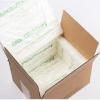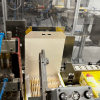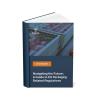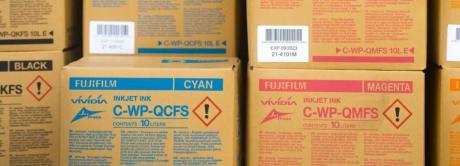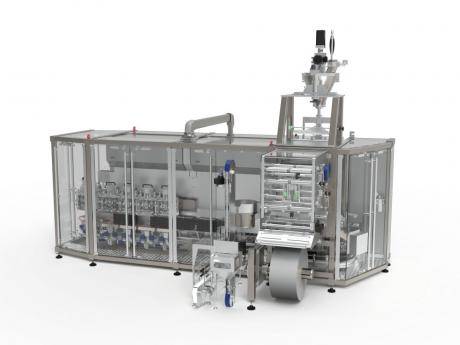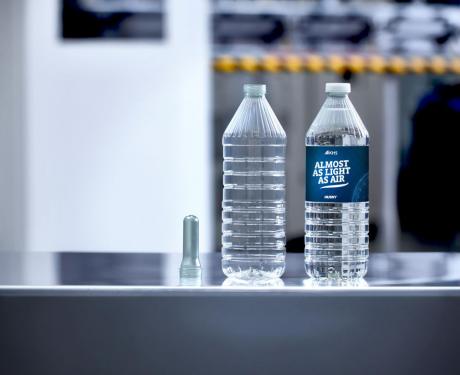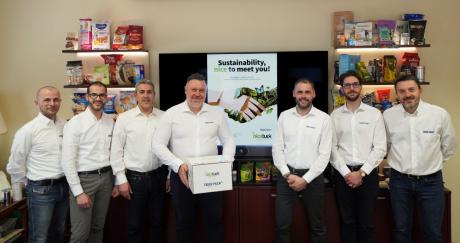Sidel's new RePETable service platform is designed to assist the packaging industry in the transition to rPET bottle production, while offering the support needed to improve the circularity of primary packaging. Sidel's goal is to facilitate a smooth and efficient transition to recycled PET by creating a one-stop shop for rPET. The RePETable platform will enable converters to use up to 100 per cent rPET without impacting bottle production and also extends its support to the development of innovative and more sustainable primary packaging materials designed for recycling.
RePETable consists of a line of dedicated rPET services designed to extend the benefits of virgin PET to rPET and to achieve consistent levels of production performance and bottle quality. Sidel's packaging innovation experts continue to develop advanced knowledge on recycled PET and develop new solutions to make bottle production more efficient, taking advantage of the unique small-scale recycling pilot line set up in France. The offer is designed to help manufacturers select and choose the most suitable services for their specific needs. RePETable complements the packaging optimisation services for lightweight bottles and also simplifies the transition to PET in terms of cost.
Consistent levels of performance and quality
With over forty years of experience in PET blow moulding and packaging, Sidel has developed a deep understanding of the characteristics of recycled PET, its variability and its impact on bottle production.
Jérôme Neveu, Packaging & Moulds Product Manager at Sidel explaine:
To achieve the same level of performance as virgin PET, the production process of rPET bottles must be adapted to the resin used. For this reason, our RePETable offer consists of solutions that meet the challenges associated with the production of rPET bottles, guaranteeing mechanical strength with excellent material extensibility and mouldability of the containers.
Sidel offers 'rPET-ready' features - with services related to packaging, moulds, machine and process upgrades - that enable consistently high levels of production performance and quality, even with 100 per cent rPET. The blow-moulding process is optimised to handle the issues associated with different rPET grades, and out-of-specification rPET is identified and discarded before processing.
A holistic approach to recycling-oriented primary packaging
Sidel's investment in the small-scale recycling pilot line supports primary packaging suppliers in innovating new materials for closures, labels, glues, additives, dyes and any other primary packaging material.
The services provided through this pilot line ensure the efficiency of the primary packaging recycling process, resin quality and performance of rPET bottles. Sidel is using this line to recreate all steps of the recycling process: washing, drying, pellet extrusion, crystallisation and solid-state polymerisation, including dedicated laboratory and process controls at each stage. Sidel's packaging and machinery experts study all aspects of the process: from post-consumer PET bales and flakes, including pellets ready to be injected into preforms, to blow moulding and industrialisation of rPET bottles.
This global approach positions Sidel as a unique centre of expertise for closed-loop PET packaging. In addition, it increases knowledge of the PET recycling market and helps verify that primary packaging material innovations comply with bottle-to-bottle recycling.
While demand for rPET continues to grow, driven by international regulations and brands' commitment to circularity in packaging, the cost of rPET fluctuates and remains higher than that of virgin PET. Sidel's packaging optimisation services for container weight reduction help to significantly offset the cost of rPET resin and achieve savings with a rapid return on investment.
With RePETable, Sidel is committed to using its extensive know-how to create a virtuous closed-loop process for food-grade rPET bottles.
Naima Boutroy, Packaging Expert Global at Sidel added:
Although PET is already fully compliant with the circular economy compared to other plastic packaging materials, the combination of lightweight and recycled PET is the fastest way to achieve carbon neutrality. Life cycle analysis shows that PET already has the best carbon footprint of all currently available packaging materials. Creating a robust recycling loop to achieve full circularity at scale will make PET an even more sustainable choice.


